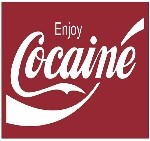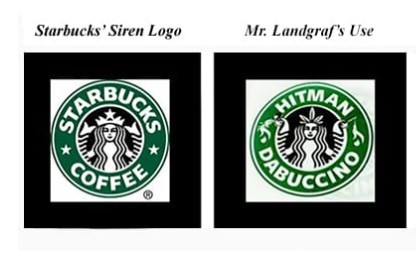
In Malaysia, as in many countries around the world, trademarks are an essential aspect of branding and identity for businesses. A trademark can be a word, phrase, symbol, or design that identifies and distinguishes the goods or services of one party from those of others. Trademarks are valuable assets for businesses, as they help to build brand recognition and loyalty, and can be licensed or sold for profit. They represent a company’s reputation and goodwill and help to differentiate its products or services from those of competitors.
Trademarks are protected which grants exclusive rights to use a trademark to its owner. However, it is essential to understand that trademark protection goes beyond just preventing others from using an identical or confusingly similar mark. Trademarks are vulnerable to infringement and dilution, which can undermine their value and harm the business that owns them. Therefore, we should understand the concept of trademark dilution in Malaysia, and how it is addressed under Malaysian trademark law.
In Malaysia, the concept of trademark dilution is recognized and addressed under the Trade Marks Act 1976, which provides for civil remedies against parties that engage in dilution of a registered trademark. Section 38(1) of the Act states that the owner of a registered trademark has the exclusive right to use the mark in connection with the goods or services for which it is registered, and to prevent others from using the mark in a way that is likely to cause confusion or deception in the marketplace. Section 38(2) of the Act goes further to state that the owner of a registered trademark may also prevent others from using the mark in a way that is likely to cause dilution of the distinctiveness or reputation of the mark, regardless of whether there is a likelihood of confusion or deception.
Under Malaysian law, the owner of a registered trademark may bring a civil action against a third party that engages in dilution of the mark, seeking damages, injunctions, and other remedies as appropriate. In order to establish a claim of trademark dilution, the trademark owner must show that the third party’s use of a similar mark is likely to dilute the distinctive character or reputation of the registered mark, even if there is no likelihood of confusion or deception in the marketplace. This can be a challenging standard to meet, as it requires a showing of actual or potential harm to the distinctiveness or reputation of the mark.
Trademark dilution refers to the unauthorised use of a trademark or a similar mark that weakens the uniqueness and distinctiveness of the original mark. It occurs when a third party uses a well-known mark to create a new association or connection with its goods or services, causing a blurring or tarnishing effect on the original trademark’s reputation. The dilution effect can cause a reduction in the trademark’s value, uniqueness, and reputation, thereby resulting in damages to the trademark owner.
Blurring refers to the use of a similar mark in a way that weakens the original mark’s distinctiveness. It is a type of dilution that occurs when the original mark is used on products or services that are not related to the goods or services for which the original trademark is registered. This usage creates a new association or connection between the trademark and the unrelated products or services, causing confusion among consumers.
If another company started marketing KODAK brand pianos, there might be little or no customer confusion, because customers would probably recognize that Kodak is unlikely to branch into the piano business or to use its film brand name on pianos. Customers would probably recognize that the KODAK pianos come from a different source. However, the KODAK pianos might still harm Kodak, because it would lessen the strong association, which the company has spent billions of dollars creating, between the word KODAK and film. Some customers, upon seeing the mark KODAK, would no longer instantly think of film—some would think of pianos instead. This lessening of the association between “KODAK” and “film” is trademark blurring.
Tarnishment, on the other hand, occurs when a third party uses a mark that is similar or identical to a well-known trademark in a manner that harms the original mark’s reputation. This harm can be caused by associating the trademark with products or services that are of low quality or controversial in nature, thereby affecting the original trademark’s positive image. Distributors of a well-known counterculture poster were sued by Coca-ColaCompany when a poster wrote “Enjoy Cocaine” in the same font as Coca-Cola, making it look like a Coke advertisement.

There have been several high-profile cases of trademark dilution in Malaysia in recent years. One notable example is the case of McDonald’s Corporation v. Future Enterprise Sdn Bhd, which involved a Singaporean restaurant chain that used a logo and branding that were similar to those of McDonald’s. The McDonald’s logo is well-known and instantly recognizable and the use of a similar logo by Future Enterprise was likely to dilute the distinctiveness and reputation of the McDonald’s mark. In this case, McDonald’s was able to successfully bring a civil action against Future Enterprise, and obtained an injunction preventing the restaurant chain from using its infringing logo and branding.
Another example of trademark dilution in Malaysia is the case of The Body Shop International Plc v. Sapura Resources Bhd, which involved a Malaysian company that used the term “Bodycare” in connection with a line of personal care products. The Body Shop, a well-known international brand, argued that the use of the term “Bodycare” was likely to dilute the distinctiveness of its own trademark, which included the word “Body” in connection with similar products. In this case, the court found in favor of The Body Shop, and issued an injunction preventing Sapura Resources from using the term “Bodycare” in connection with its products.
In 2018, Starbucks motioned for a default judgement against James Landgraf, an individual responsible for the design and sale of glass bongs, clothing, and other novelties that infringed certain logos owned by Starbucks. Starbung had used a similar green and white color scheme and font style as Starbucks, with a logo that featured a mermaid instead of Starbucks’ siren. Starbucks argued that the use of the trademark was likely to cause confusion and dilute the distinctive qualities of its trademark. The case was settled out of court, and Starbung agreed to change its name and branding.

Trademark dilution has several implications for businesses in Malaysia. First and foremost, dilution can lead to a loss of trademark distinctiveness and value, which can affect a company’s reputation and goodwill. Dilution can also cause confusion among consumers, who may associate the trademark with unrelated goods or services or low-quality products, thereby damaging the company’s reputation.
Moreover, trademark dilution can also lead to legal and financial consequences. A trademark owner can sue a third party for dilution and seek damages or an injunction to prevent further dilution. However, proving dilution can be challenging, as it requires demonstrating the trademark’s fame, distinctiveness, and association with the owner’s products or services.
Trademark dilution is a complex legal concept that can have significant consequences for businesses that rely on their trademarks to build and maintain their brand recognition and loyalty. However, establishing a claim of trademark dilution can be a challenging process, requiring a showing of actual or potential harm to the distinctiveness or reputation of the mark.
Businesses that are concerned about the potential for trademark dilution should take steps to protect their trademarks, including registering their marks with the Malaysian Intellectual Property Office and monitoring the marketplace for potential infringers. Here at Intellect, we can help you take proactive measures to protect your trademarks and ensure that your marks retain their value and distinctiveness in the marketplace.
© Copyright 2024 | iPon9 | All Rights Reserved. Website designed by VeecoTech.
